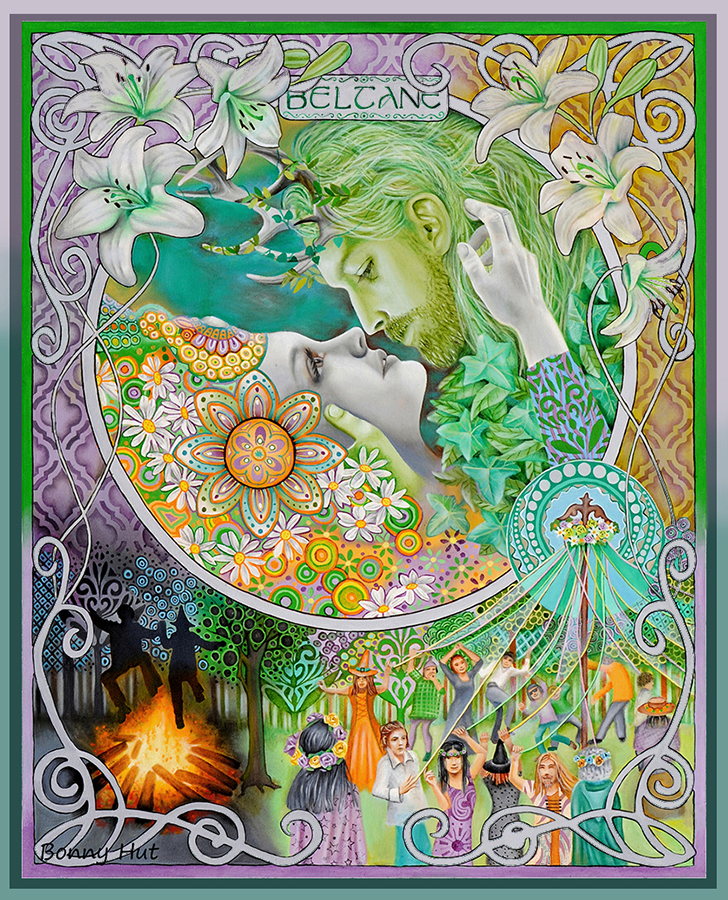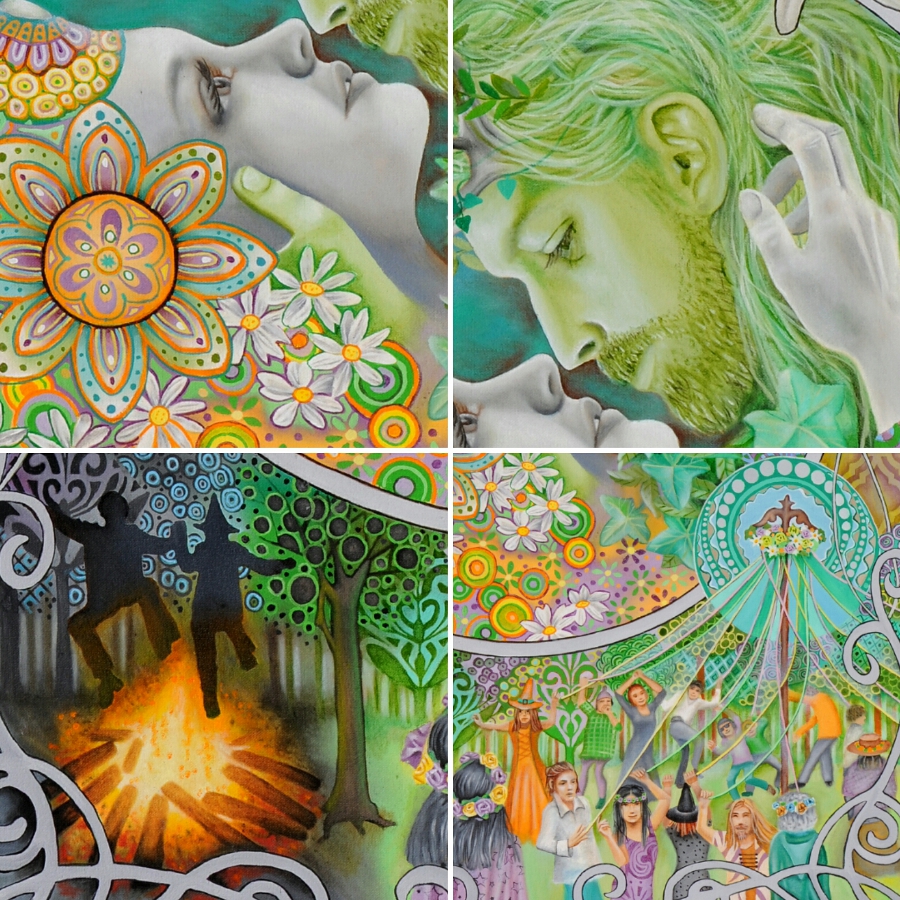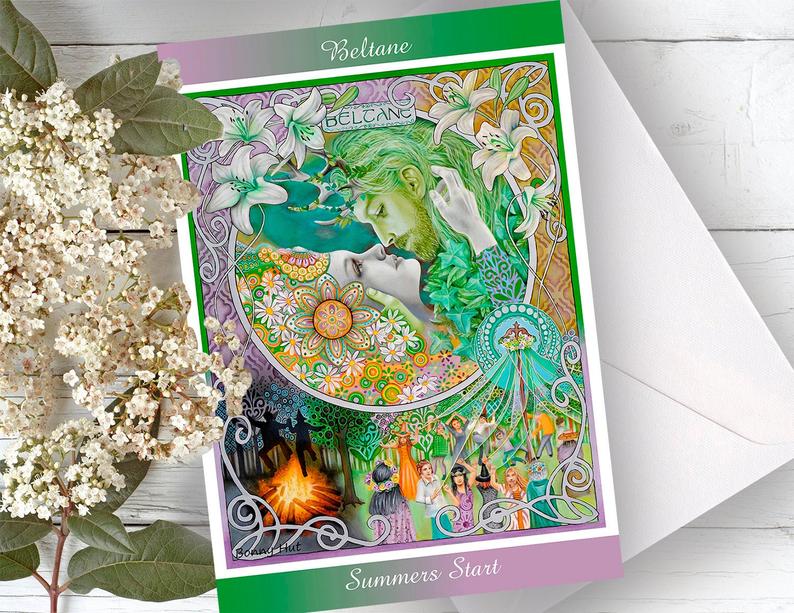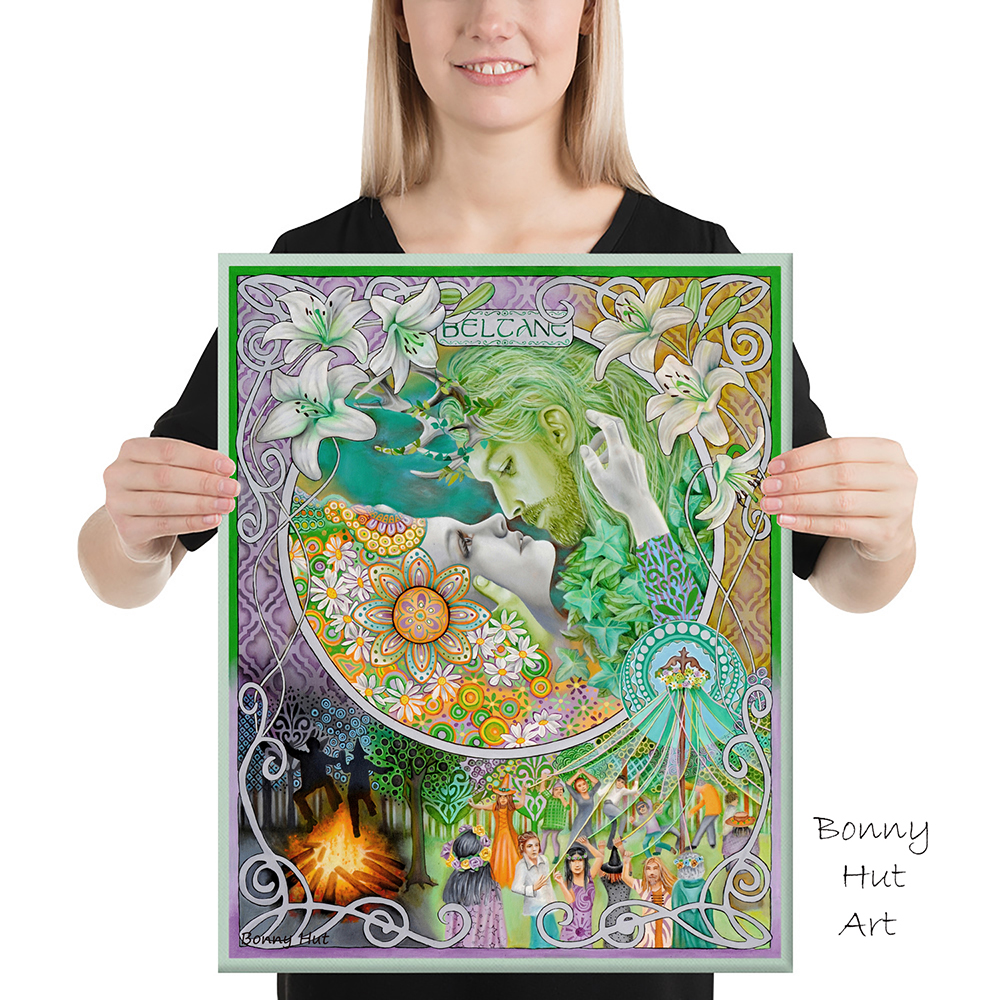|

BELTANE / BELTAIN
Beginning of Summer.
TRADITIONAL DATES : Northern Hem: April 30 - May 1 . Southern Hem: Oct
31 - Nov 1.
Astrological dates vary annually.
Celebrated sunset to sunset.
BELTANE: SOME KEY POINTS:
- Beltane has been celebrated for
centuries throughout Ireland, Scotland and many of these customs were
also part of May Day or Midsummer festivals in other parts of Great
Britain and Europe but died down during the mid part of the 20th
century but has now been revived by Neo paganism and by other European
cultural practices.
- Rituals were performed to protect the cattle, crops and
people, to encourage growth and fertility of the land. Also known
as Cétshamhain ("first of summer"), it marked the
beginning of summer and
was when cattle were driven
out to the summer pastures. These gatherings
would be accompanied by a feast, and some of the food and drink would
be offered to the aos
sí. Doors, windows, byres and livestock would be
decorated with yellow May flowers, perhaps because they evoked fire. In
parts of Ireland, people would make a May Bush: typically a thorn bush
or branch decorated with flowers, ribbons, bright shells and
rushlights. Holy
wells were also visited, while Beltane dew was
thought to bring beauty and maintain youthfulness.
- Beltane
is a Fire Festival. The word
'Beltane' originates from the Celtic God 'Bel', meaning 'the bright
one' and the Gaelic word 'teine' meaning fire. Together they make
'Bright Fire', or 'Goodly Fire' and traditionally bonfires were lit to
honour the Sun and encourage the support of Bel and the
Sun's light to nurture the emerging future harvest and protect the
community. Special bonfires were
kindled, and their flames, smoke and ashes were deemed to have
protective powers. The people and their cattle would walk around or
between bonfires, and sometimes leap over the flames or embers. All
household fires would be doused and then re-lit from the Beltane
bonfire.
- The
Maypole dance
is a ceremonial folk dance performed around a tall pole garlanded with
greenery or flowers and often hung with ribbons that are woven into
complex patterns by the dancers. Such dances are survivals of ancient
dances around a living tree as part of spring rites to ensure
fertility.
- As Beltane is the Great Wedding of the
Goddess (May Queen) and the God, it is a popular time for pagan
weddings or Handfastings, a traditional betrothal for 'a year and a
day' after which the couple would either choose to stay together or
part without recrimination. People jumped the fire to purify, cleanse and
to bring fertility. Couples jumped the fire together to pledge
themselves to each other.

|




